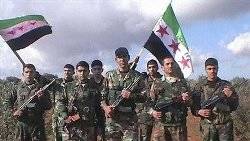Arab League foreign ministers are due to meet in Cairo to discuss the future of an observer mission in Syria that critics say has failed to halt the bloodshed in the country.
The regional bloc is expected to extend the Arab League monitoring mission, even boosting observer numbers, after foreign ministers are briefed in the Egyptian capital on Sunday on the mission's first month in Syria.
An observer mission official, speaking on condition of anonymity, said the mission’s observers, entrusted with monitoring the government’s implementation of a peace plan aimed at ending violence in the country, would increase from 165 to 300.
Another source close to Nabil Elaraby, the head of the Arab League, said ministers could decide to offer the additional support in the form of UN or military experts.
The meeting comes amid reports of clashes between Syrian government troops and army defectors in Douma, a suburb of the capital, Damascus, on Saturday night.
"Apparently there were some clashes between the regime's army and the FSA [Free Syrian Army] but the FSA has gone back to its positions," Rafif Jouejati, a spokeswoman for the Local Co-ordination Committees (LCC) activist network, told Al Jazeera.
She said there had been an explosion in the area, apparently targeting a riot police vehicle.
Activists say that hundreds of people have been killed since the monitors arrived in Syria, with some reporting the deaths of as many as 740 civilians in the last month.
Critics say the Arab mission has only provided diplomatic cover for President Bashar al-Assad to pursue a crackdown that has already killed more than 5,000 people since anti-government protests erupted in March 2011, according to a UN count.
Monitors' head 'satisfied'
The mission's chief, General Mohammed Ahmed Mustafa al-Dabi of Sudan, is satisfied with the observers' achievements so far, the mission's deputy chief of operations, Ali Jarush, said.
"Everything indicates the observer mission in Syria will be extended by a month," Jarush said.
"Dabi sees that in the last phase the necessary thrust (of the operation) was achieved after more monitors were deployed and fanned across 20 areas and after they were provided with equipment and logistics which they previously lacked."
Syria’s main opposition bloc, the Syrian National Council (SNC), said, however that Dabi’s report would not be credible.
Burhan Ghalioun, the head of the SNC, said he told Elaraby in Cairo, the Arab League headquarters, that the conditions under which the observers were forced to work "do not allow it to present an objective report, reflecting the actual situation in Syria".
The League's monitors were escorted around Syria by government troops.
The SNC formally asked the Arab League on Saturday to refer the Syrian crisis to the UN Security Council.
"We think that when the Arab League refers the case to the United Nations and to the Security Council the situation will change," Basma ElKadamny, an SNC spokesperson, said in Cairo.
Al Jazeera's Mike Hanna, reporting from Cairo, said: "the opposition is arguing that the monitoring mission has not succeeded in persuading the Syrian government to follow along with the peace plans which involved a number of steps: the removal of military from urban centers, the release of all detainees and end to the crackdown on the opposition."
PHOTO CAPTION
Syrian soldiers who defected to join the Free Syrian Army pose in the northern province of Idlib, January 19, 2012.
Al-Jazeera

 Hajj virtues
Hajj virtues